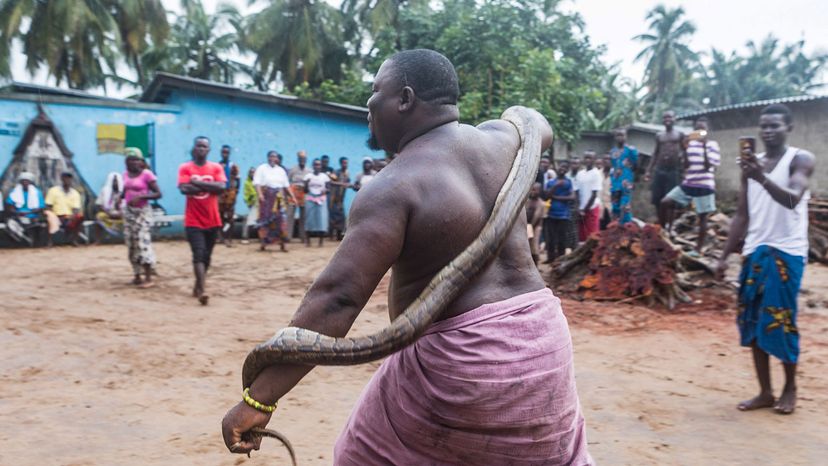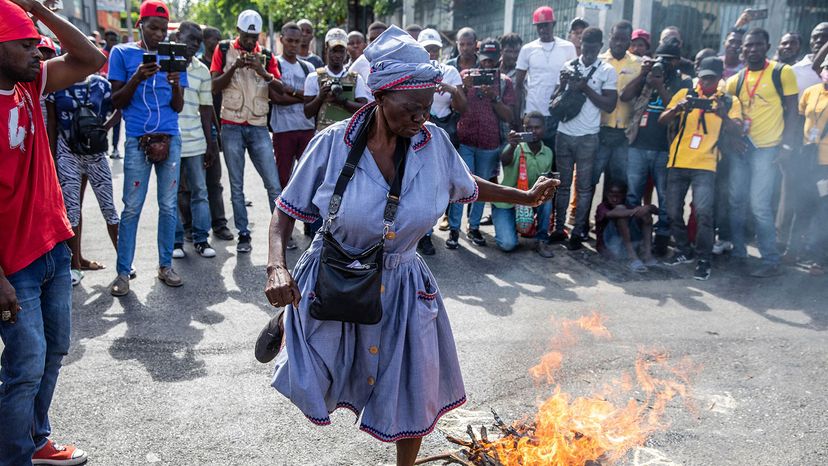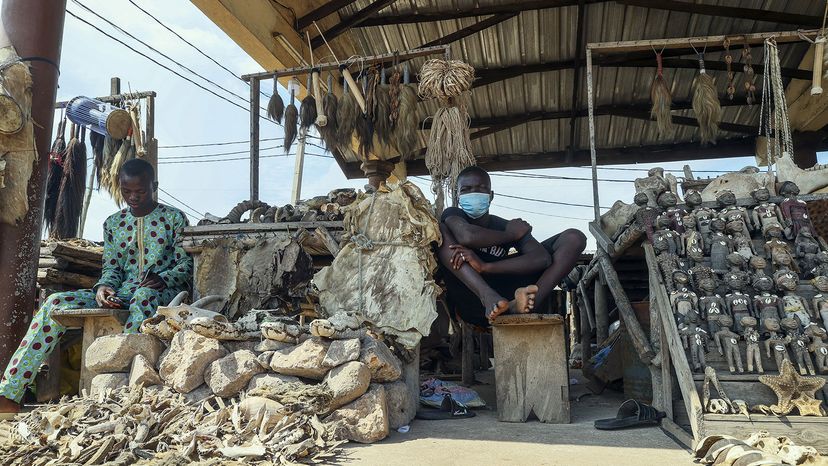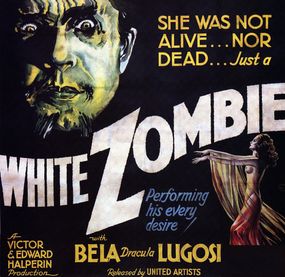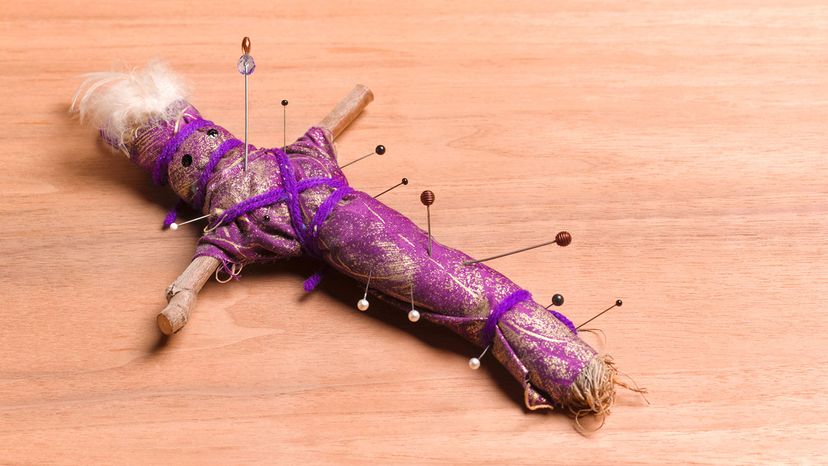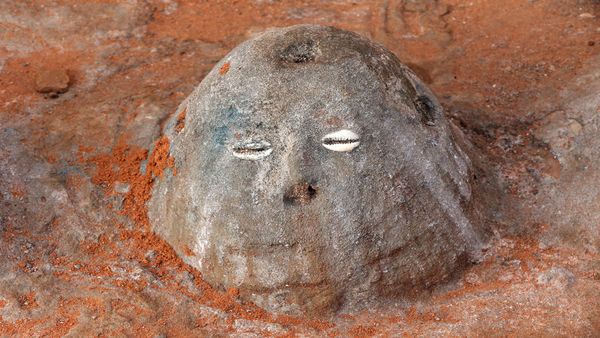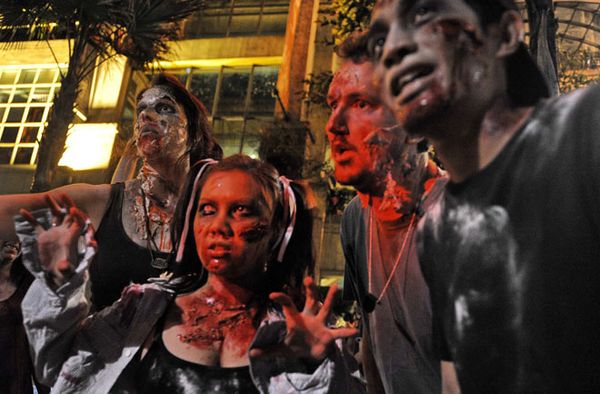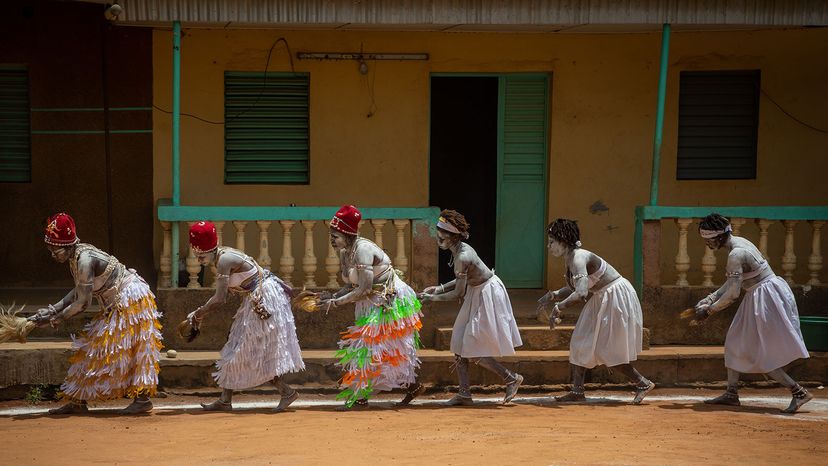
You don't have to look far to find references to Voodoo in popular culture, especially in the Western world. Zombie movies, of course, have distant roots in Haitian Voodoo. Novelty stores sell pin-filled dolls to target anyone from miscreant romantic partners to unreasonable bosses. Even the Disney film "The Princess and the Frog" featured a Voodoo priest using black magic to turn an eligible prince into an amphibian.
Representations like these are a big part of what many people would mention if asked to describe Voodoo. Some people would also talk about spiritual possession and animal sacrifice. Many might reference a specific place — Caribbean islands like Haiti, or the southeastern United States, especially New Orleans and the Mississippi Delta.
Advertisement
In spite of their prevalence in most people's minds, many of these stereotypes have nothing to do with Voodoo. Others are related only tangentially. However, some of the stereotypes include a grain of truth, and one — spirit possession — is central to the Voodoo religion.
According to the Voodoo tradition — also known as Vodou — there is one supreme God, who is known by different names in different parts of the world. In Haiti, for example, he is called Bondye, which comes from the French phrase bon Dieu, meaning "good God." Regardless of which name people use, the primary god is immensely powerful and beyond the reach of ordinary followers. For this reason, Voodoo practitioners must rely on hundreds or thousands of other spirits to communicate with God.
These spirits are known as loa or lwa in Haiti; anthropologists writing about African Voodoo often refer to them as spirits or gods [source: Visit Haiti]. The spirits exist in a hierarchy. There are major, powerful loa, many of whom have their own holidays, celebrations or other observances. There are also minor spirits, who play various roles in different regions. Communities and even families have their own loa, such as the spirits of beloved or influential family or community members. The loa receive their power from God and communicate with God on behalf of followers.
During ceremonies and observances, followers of Voodoo ask the spirits for advice, protection or assistance. The process is reciprocal; followers must look after the loa by performing rituals, which sometimes come in the form of animal sacrifice. Other rituals allow followers to thank the spirits for protection, blessings or good fortune. To maintain a good relationship with the loa, followers must also conduct themselves properly according to the customs of both the community and the religion. In this way, the practice of Voodoo can influence a person's day-to-day decisions and activities.
Part of the Voodoo belief is that loa communicate with followers through possession. The loa temporarily displaces the soul of its host, or medium, and takes control of the medium's body. According to this belief, the medium cannot feel pain or become injured while possessed. The loa speaks through the medium, often giving instructions, advice or prophecies of future events. Sometimes, a loa rebukes followers for failing to perform their duties to the loa, their family or their community. In some Voodoo traditions, a few select people have the privilege of becoming possessed. In others, the loa may choose to possess anyone at any time.
This idea — that powerful or influential spirits can possess people — unites two distinct forms of Voodoo. One exists primarily in the northern and central portions of the western African coast. The other is practiced primarily in Haiti, as well as in parts of North and South America. Books that explore either form often explain the religion through a series of stories or anecdotes instead of as a straightforward analysis. There are several reasons for this:
- Voodoo is an oral tradition without a primary holy text, prayer book or set of rituals and beliefs. In different regions, Voodoo practices, the names of gods and other traits can vary considerably.
- The religion makes use of a wealth of rituals and observations that affect followers' day-to-day lives, making a straightforward list of observances impractical.
- In many ways, Voodoo is a personal religion. Followers have direct experiences with spirits and loa, and these experiences can be dramatically different from place to place and person to person.
To get an idea of where Voodoo came from and how it works, we'll explore the religion's history as well as the symbols, objects and customs that are common in its practice. We'll begin by taking a look at African Voodoo.
Advertisement
